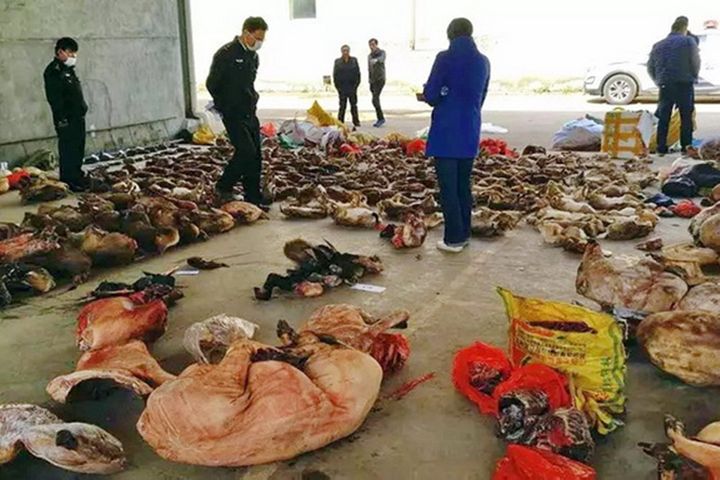 Chinese E-Commerce Platforms, Other Sites Are Still Selling Wildlife Despite Ban
Chinese E-Commerce Platforms, Other Sites Are Still Selling Wildlife Despite Ban(Yicai Global) March 2 -- A number of Chinese e-commerce platforms and companies are still selling wildlife and related meat products though the authorities have prohibited their purchase, procurement and consumption. Regulators have also banned advertising that involves wildlife deals in the wake of the novel coronavirus outbreak.
Some vendors have posted details about oil and hasma (dried fatty tissue) made from or found in Asiatic grass frogs from the Changbai mountains in northeast China or dried frogs, or are selling adult horned beetles, crickets, mantis, centipedes, millipedes and other living wildlife.
Shop owners are also selling the meat of minks, raccoons and foxes on wholesale platform Beiji, Makepolo.com and other sites, even posting the phone numbers of sales staff.
"Sales are temporarily ceased due to the epidemic," said a salesperson at a farm breeding grass frogs in north China's Jilin province. "You can leave your contact and we'll call you when sales resume."
A company that rears snakes in southeastern Jiangxi province said that its deinagkistrodon powder costs CNY2,500 (USD358.70) per kilogram, while the powder made from cobras is sold at CNY800 per kg.
"The products can be sent in the form of both powder and dried snakes, but delivery is currently unavailable due to the Covid-19," the breeder added.
A global alliance to combat the illegal online trade of wild animals and plants told Yicai Global that between 2017 to this month its members had banned or deleted about 3 million pieces of information on illegal transactions regarding endangered species and corresponding products, including sales of tigers, ivory, pangolin scales, and sea turtles.
On Feb. 27, Liang Aifu, head of the department for supervision and regulation of online trade at the General Administration of Market Supervision, said that the administration had stepped up monitoring and supervision of e-commerce platforms and strengthened special inspections of ads involving wildlife transactions.
During the virus outbreak, regulators have inspected the operations of shops and sites 4.6 million times, monitored e-commerce platforms and sites 1.4 million times and urged merchants to withdraw, delete or block 140,000 pieces of information pertaining to these transactions and stopped the operation of 11,000 shop owners for rectification, Liang said. At the same time, they have also investigated and cracked down on a batch of illegal wildlife transactions.
Editors: Zhang Yushuo, Peter Thomas